Some herbs enhance the flavor of everyday meals and help prevent and cure common diseases.
Basil
Lao Dong newspaper quoted Livestrong website as saying that studies from prestigious health organizations such as the World Health Organization (WHO) and the National Institutes of Health (NIH) show that basil contains many antioxidants, especially eugenol, which helps reduce inflammation and support cardiovascular health.
According to research in the Journal of Clinical Nutrition, eugenol also helps balance blood sugar levels, which is very helpful for people with diabetes. Basil is also rich in vitamin K, which helps improve bone health.
Coriander
Cilantro contains substances like linalool and quercetin, which have been shown to reduce inflammation and aid in liver detoxification. Coriander can lower “bad” (LDL) cholesterol and increase “good” (HDL) cholesterol, helping to prevent heart disease.
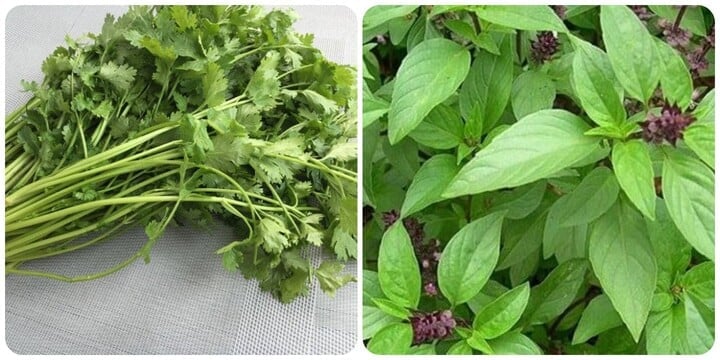
Most herbs are spicy, warm, contain essential oils, stimulate digestion, disinfect, and warm the stomach.
Perilla
Perilla is rich in omega-3s, flavonoids, and powerful antioxidants, which help improve digestive health and reduce inflammation. According to the Journal of Medicinal Food, perilla is also anti-allergic, helping to treat atopic dermatitis and asthma thanks to compounds like perilla aldehyde.
Vietnamese coriander
VietNamNet newspaper quoted specialist doctor Huynh Tan Vu - Lecturer of Traditional Medicine Faculty, University of Medicine and Pharmacy, Ho Chi Minh City, saying that Vietnamese coriander has a special aroma, spicy taste, warm properties, and is not toxic. Vietnamese coriander is an indispensable spice eaten with eel porridge, duck eggs, chicken salad, to eliminate the fishy smell in seafood.
In Oriental medicine, Vietnamese coriander is a medicinal herb that stimulates digestion, expels wind and cold, and is used to treat stomach aches, snake bites, eczema, hemorrhoids, and poor appetite. Usually, when used as medicine, people use fresh, unprocessed herbs.
Betel leaves
Piper lolot is a wild plant that grows everywhere. Piper lolot has the effect of warming the middle burner and stomach. It cures vomiting caused by cold air and abdominal pain. It cures headaches, toothaches, runny noses, and loose, bloody stools.
In folk medicine, betel leaves are often used to treat the following diseases: bone and joint pain, gynecological diseases (infections in the vaginal area, itching, vaginal discharge, excessive sweating in hands and feet, dyshidrosis on the hands, toothache, sinusitis, runny nose, heatstroke, cold stomachache, loose stools, nausea, hiccups.
Spring onion
Scallions contain allicin, a compound that has been shown to lower blood pressure and improve immune function. Scallions are also rich in vitamin C and quercetin, which boost antioxidant capacity and protect cells from free radicals.
Mint
Peppermint is known for its soothing effects on the digestive system. Research from the National Institutes of Health shows that peppermint essential oil can reduce symptoms of bloating, indigestion, and irritable bowel syndrome. Peppermint also helps improve mood and reduce stress due to its positive effects on the nervous system.
VietNamNet newspaper quoted specialist doctor Huynh Tan Vu II - lecturer of Traditional Medicine Department, University of Medicine and Pharmacy, Ho Chi Minh City, saying that most of the spices have a spicy taste, warm properties, contain essential oils, stimulate digestion, disinfect, and warm the stomach. In the cold season, using a little more of these spices will help increase the flavor of life, protect health against the cold outside and the cold inside effectively.
Source: https://vtcnews.vn/7-loai-rau-thom-tot-cho-suc-khoe-nen-an-thuong-xuyen-ar908438.html


![[Photo] Solemn opening of the 8th Congress of the Central Public Security Party Committee, term 2025-2030](https://vphoto.vietnam.vn/thumb/1200x675/vietnam/resource/IMAGE/2025/10/4/f3b00fb779f44979809441a4dac5c7df)



![[Photo] General Secretary To Lam attends the 8th Congress of the Central Public Security Party Committee](https://vphoto.vietnam.vn/thumb/1200x675/vietnam/resource/IMAGE/2025/10/4/79fadf490f674dc483794f2d955f6045)
![[Photo] Bustling Mid-Autumn Festival at the Museum of Ethnology](https://vphoto.vietnam.vn/thumb/1200x675/vietnam/resource/IMAGE/2025/10/4/da8d5927734d4ca58e3eced14bc435a3)


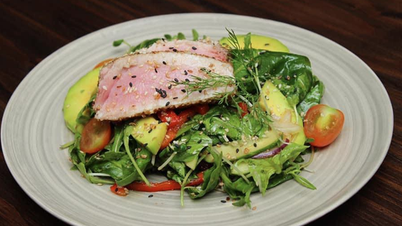

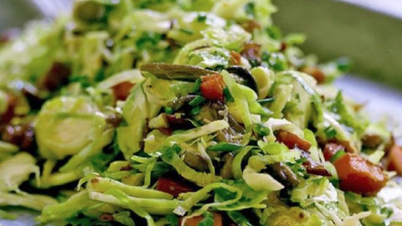
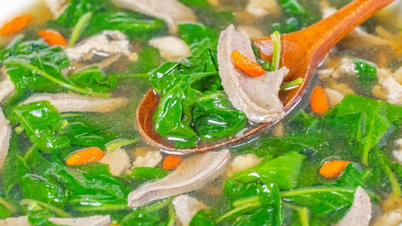
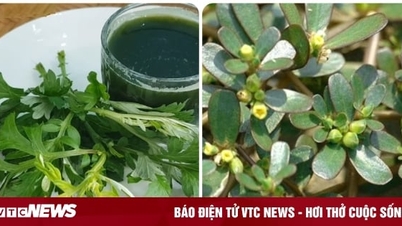


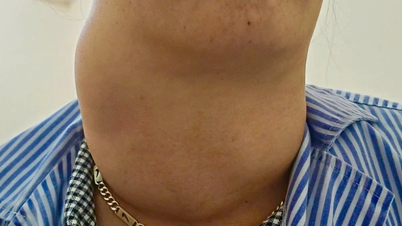









































![[VIDEO] Summary of Petrovietnam's 50th Anniversary Ceremony](https://vphoto.vietnam.vn/thumb/402x226/vietnam/resource/IMAGE/2025/10/4/abe133bdb8114793a16d4fe3e5bd0f12)

![[VIDEO] GENERAL SECRETARY TO LAM AWARDS PETROVIETNAM 8 GOLDEN WORDS: "PIONEER - EXCELLENT - SUSTAINABLE - GLOBAL"](https://vphoto.vietnam.vn/thumb/402x226/vietnam/resource/IMAGE/2025/7/23/c2fdb48863e846cfa9fb8e6ea9cf44e7)


































Comment (0)